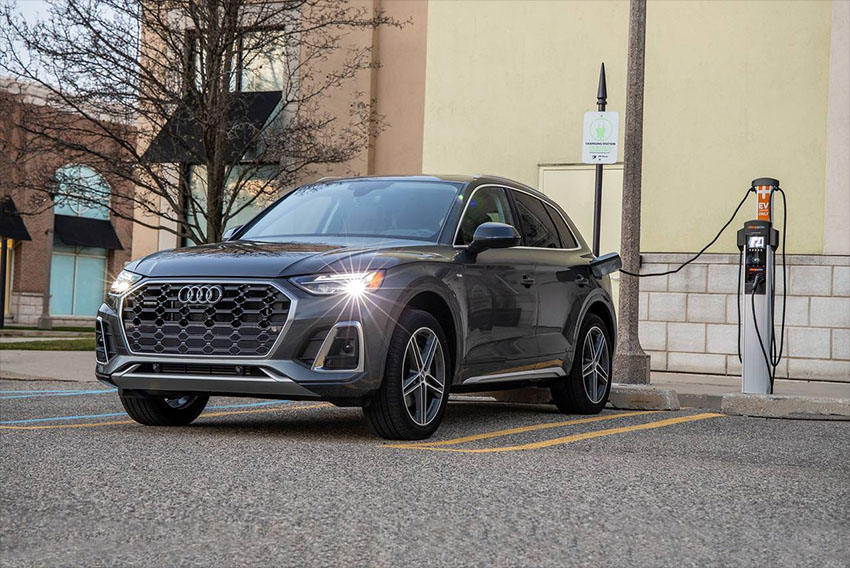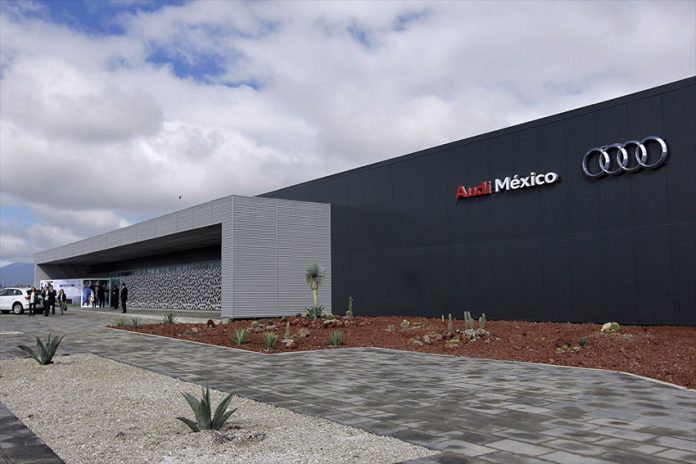German automaker Audi intends to start manufacturing electric vehicles (EVs) at its Puebla assembly plant in 2027.
Tarek Mashhour, executive president of Audi México, told a press conference Friday that the automaker will make a multimillion-dollar investment to ready its San José Chiapa plant for electric vehicle production.
He said the company will add new sections to its plant to allow it to make EVs. Mashhour also said that Audi will provide additional training to its employees so they are equipped for EV production.
Audi currently manufactures its Q5 crossover SUV at its plant in San José Chiapa, located about 60 kilometers northeast of Puebla city. It has made the hybrid version of the same vehicle in Puebla since 2019.

Mashhour said the automaker will confirm in early 2023 which electric vehicle it will make in Puebla, but it appears likely to be an electric Q5. Audi began operations in the state in 2016 and is currently doing well, according to the executive president.
“We’re in a good situation. The Q5 is selling well. We’re receiving the semiconductors we need, that means we can produce without closing the plant and … we’re producing according to our [planned] schedule, with complete shifts. We have [the] parts [we need] and we can produce,” Mashhour said.
He noted that the Puebla plant has manufactured some 876,000 vehicles since it opened six years ago.
In addition to expanding its plant for EV production, Audi wants to install a solar power facility in San José Chiapa. Mashhour said that the company has once again requested a permit to build a 7-10 megawatt solar park at its plant. The federal Environment Ministry rejected its application in July due to an administrative error.
Mashhour said that the planned solar park would cover part, but not all, of the plant’s electricity requirements. The renewable energy facility is slated to be up and running within 15 months of approval.
Mashhour noted that Audi is aiming to reduce its worldwide emissions to zero by 2025, and highlighted that its already 80% of the way there. The San José de Chiapa plant has reduced its water consumption by 50% and put new processes in place to cut gas and electricity use, he said.
With reports from Milenio and El Economista
